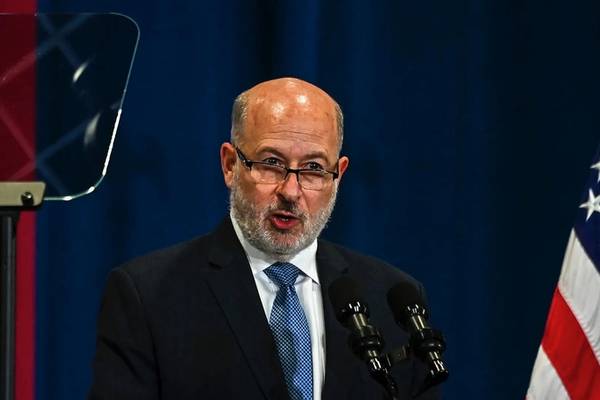OPINION: Save a Nickel, Kill a Thousand - The Pennies-Wise, Lives-Foolish Effort to Eliminate NOAA
Feb 20, 2025

By Rick Spinrad, Ph.D., NOAA Administrator from 2021-2025. Image courtesy Rick Spinrad
I know how to reduce the federal budget by $7B, if we are willing to kill a few thousand Americans every year, put our economy further into debt, and guarantee the loss of real property around the country.
It can also be done without eliminating many services currently provided by the federal government, except you’ll just have to pay hefty user fees (assuming you’re actually allowed access) to a private company to get those services. And this all assumes that someone is also willing to absorb the capital expenses associated with operating their own air force, navy, and space force.
The way you do this is by defunding the National Oceanic and Atmospheric Administration (NOAA), or just simply invoking a reduction in force by removing personnel and incapacitating the agency.
With the threat of eliminating NOAA, or even just splitting up its parts, or arbitrarily firing employees, and conducting what amounts to a fire sale, that is the outcome we will see. “Will”, not “might”. The predicted impact to lives, livelihoods, and property isn’t hyperbolic. In fact, just look back to where we were before we had the benefit of many decades of investment in what NOAA does for America … at a cost, oh by the way, of 6¢ per American per day.
Before modern NOAA existed (established, incidentally by President Richard Nixon in 1970), an unforecasted hurricane hit Galveston in 1900 destroying the city and killing about 8,000 people. A devastating geomagnetic storm in 1989 (before NOAA developed its current capacity for space weather) wiped out large portions of North America’s electrical grid, shutting down the Toronto stock exchange, causing widespread communications blackouts, and impacting military operations around the world, because there was insufficient warning to prepare for impacts. The great droughts of the 1930s in the mid-west were mostly unpredicted, and left millions of Americans destitute and starving, and millions of acres of farmland lost. NOAA now protects people and property from these (and countless other) disastrous weather, ocean, and climate events every hour of every day.
But, you may say, we didn’t have Accuweather, and The Weather Channel, and the rest of the private weather enterprise back in those pre-NOAA days. That’s true, and those companies have been extremely helpful and economically prosperous … due to their reliance on NOAA’s data and forecasts. It’s NOAA that operates 122 Doppler weather radars, 16 environmental satellites, 15 ships (that provide accurate nautical charts and sustainable seafood), and 10 airplanes (including the Hurricane Hunters, and the planes that monitor atmospheric rivers). Without NOAA, someone would have to pick up the bill for all of those assets, and their continuing operations and maintenance costs. And that someone will be the privileged few willing to pay the private sector the fees and subscriptions that would have to be charged, like one does for Netflix or Amazon Prime. Wanna know when that hurricane’s going to make landfall, or where those tornadoes are going? Pay up.
NOAA has historically been grossly under-resourced to fully implement its stated mission:
With just 12,000 federal employees the agency has always struggled to meet the mission (and done so heroically at times, as when Superstorm Sandy hit the northeast US in 2012), and if anything, needs at least an additional 5,000 employees to be most effective.
So go ahead, Mr. Musk and Mr. Trump, fire those NOAA employees and cut the agency’s budget, but have the guts to stand up and take the hit for the deaths and destruction that result, while saving our wealthiest Americans a whole 6¢ per day.
The preceding was authored by Rick Spinrad, Ph.D., who was NOAA Administrator from 2021-2025. The opinions expressed here are solely those of the author and do not necessarily reflect the opinions of the publisher.
People
Government Update
Industry News
Production
noaa
weather forecasting